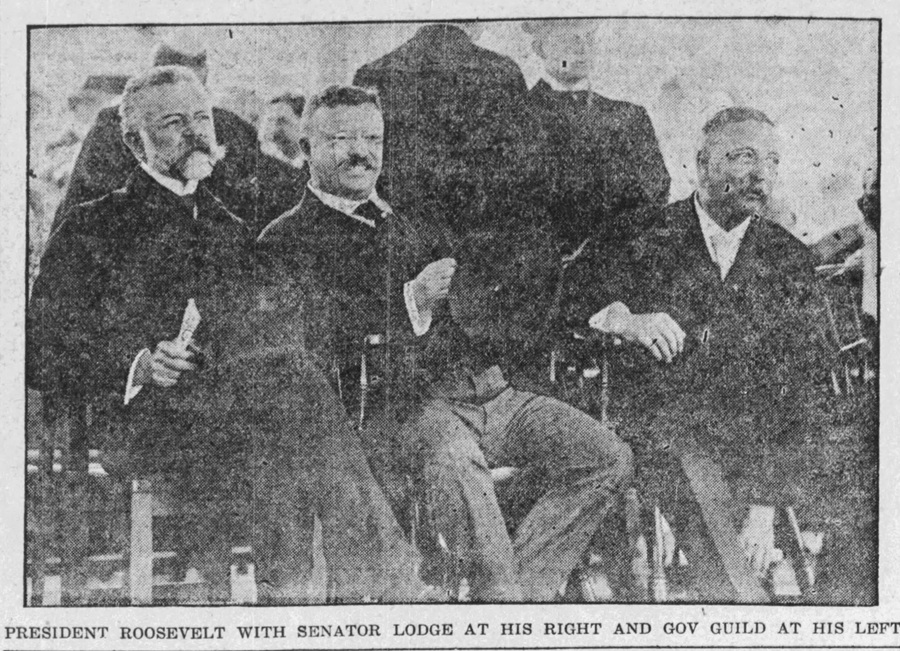From the Aug. 21, 1907 issue of the Boston Globe, selected and edited by Kaimi Rose Lum
PROVINCETOWN — Standing on a sandy hill in this historic old town by the sea, beside the cornerstone of a monument that will be reared to the memory of the first landing of the Pilgrims in the new world, Theodore Roosevelt, President of the United States, today reiterated his hostility to bad trusts and his unalterable determination to wage war upon those “ruthless and domineering men” who “hide behind the breastworks of corporate organization.”
Those parts of the President’s speech most loudly applauded by the 2000 persons within range of his voice related to his program for punishing “certain malefactors of great wealth.”
He flogged, excoriated and skinned alive the bad trusts, and announced that what he once said about desirable and undesirable citizens still holds good. Then he left the subjects of trusts and spent an informal quarter hour with 300 fishermen whom James B. Connolly had rounded up to meet him.

Fishermen Cheer Him
This reception took place after 3 o’clock, just before the President returned on board the Mayflower to return to Oyster Bay.
The fishermen, many of whom had come from Gloucester on Mr. Connolly’s invitation to meet the President, were packed into Odd Fellows’ Hall. They cheered the President when he came in and listened with evidences of pleasure while he talked to them about the value of independence and individuality in America.
He told them that the man who had confidence in himself, who believed in work, who was content with honest labor, was the best type of man, and the most useful citizen. He talked to them like a father to his boys and when he had finished, and the applause had subsided, the sturdy sons of the sea nudged each other and said, “Say, he’s all right, ain’t he?”
They all came into line next and shook hands with the President, who had a fitting word, “Delighted,” or “Now isn’t this bully” for each, with as much gayety as a boy, and far more blithely than one would think a President could who had just been grasping one of the most serious national problems of his life.
When the last fisherman had passed out of the hall the President said to Mr. Connolly, “I wouldn’t have missed this for a great deal; it’s great.” Then after a few words in the young author’s ear he left the hall, entered his stately carriage, and with a flourish of bugles and a stiffening of the line of sailors along the street he rode off to the pier to embark.



